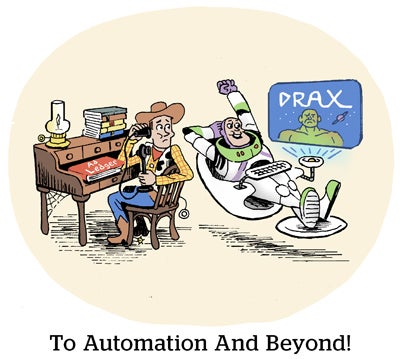Here’s today’s AdExchanger.com news round-up… Want it by email? Sign up here.
Eye Of The Iger
Former Disney head honcho Bob Iger is a “pessimist” on a Big Tech breakup or European-style regulation in the US.
Iger spoke with Kara Swisher of The New York Times just three weeks after retiring at the end of 2021.
Major studios are also reckoning with a sudden change in business model. Formerly, box-office sales could be portioned off and guaranteed to stars and different stakeholders.
Streaming services like Netflix, Amazon and Disney now pay a flat fee for rights, often with incentives based on viewership metrics. “It’s not like there’s direct revenue attributed to that film.” (This was at the root of Disney’s lawsuit with Scarlett Johannson regarding a Marvel movie that was delayed and mostly skipped theaters.)
Does Iger agree that Silicon Valley now owns Hollywood, so to speak?
“I don’t think anybody owns Hollywood … but there’s no question that deep-pocketed technology companies – Apple being a great example of that, Amazon being another – have figured out that if they make intellectual property or tell stories, that it will benefit their other businesses – in Amazon’s case, to sell more Prime customers, in Apple’s case, I imagine, to sell more devices.”
Who Chooses Who?
Benjamin Comar, named CEO of the Swiss watchmaker Piaget last year, is a strange name to appear in AdExchanger’s pages. But Comar, who came up as Parisian director of fine jewelry and is profiled in the Financial Times, has a high-level perspective that’s worth putting through a data-driven lens.
Reevaluating the Piaget customer has been Comar’s main task through the pandemic.
Pre-COVID, most of Piaget’s sales came from tourism. That’s now below 10%. Without travel, the company focused on areas surrounding its store locations and has still sustained growth.
If Piaget is able to regain its footing in travel and tourism sales – if and when international recreational travel returns to normal, whatever that means – its new local prowess could be an important, sustainable diversification for luxury and boutique companies.
But Comar “grimaced” when asked about using demographic or behavioral data for marketing, instead of focusing on location data to reach people who live near a store.
“I have never worked in terms of age or gender or nationality,” he tells the FT. “I think, in this world, it’s totally obsolete. … It is the customer that chooses the product, not [the brand who] chooses the customer.”
H/t to Giulio, @astaniscia86 for the spot.
Near Enough
Looks like one of the big third-party location data streams is running dry.
Family safety app Life360 will no longer sell its users’ precise location data, The Markup reports.
Life360’s location data sales accounted for $16 million in 2020, or about 20% of the total revenue.
Life360 will still sell user-level data to Arity, Allstate’s mobility and driver data platform, which uses the info to track drivers for in-car mapping and emergency services. Life360 will also sell aggregated location data to the foot-traffic analytics platform Placer.ai, which it hopes can replace some of the lost revenue after severing ties with a dozen or so other location data partners and resellers.
The pivot to selling aggregated location data “reduce[s] business risk,” according to Life360 CEO Chris Hulls.
The aggregation approach also mirrors new data practices in ad tech, where platforms like Google, Facebook and Twitter have transitioned from user-level conversion attribution to aggregate measurement and data modeling.
But Wait, There’s More!
The maturation of programmatic CTV is reaching the “growing pains” phase. [Digiday]
Customer acquisition marketing platform System1 IPOs on the NYSE. [release]
Google releases differential privacy tools to commemorate Data Privacy Day. [VentureBeat]
US podcast ad spend spiked 21% to $590 million in 2021. [MediaPost]
You’re Hired!
Permutive hires Mark Pearlstein as chief revenue officer. [release]












